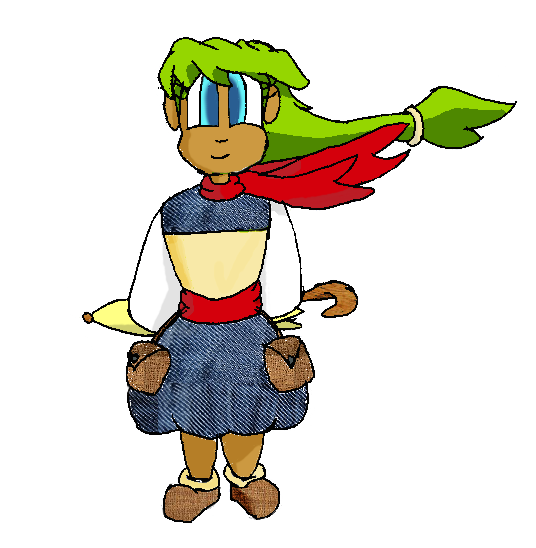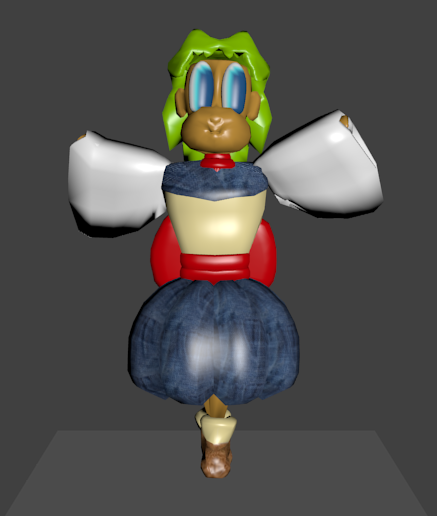I’ve finally completed a novel that I don’t just feel proud of, but feel fairly confident in; “Anyone who wants to read the kind of book I want to read will want to read my book” (once it’s proofed and has final edits, of course).
In order to reach this point of, I guess, confidence, I labeled a lot of other interests as hobbies for the past decade; I threw myself completely into novel writing as my sole goal. It’s been a rewarding and enriching journey so far, but I could never shake this strange feeling anytime I sat down at the keyboard, a strange mild depression.
Specialization is a terrifying thing.
We live in a world of a specialization, right? Well, at least to my American, Californian experience, and it’s a scary, scary world when you consider how quickly life changes as we surf through the Digital Age. “I do one thing very, very well, and I will do this for the rest of my life. I place all my pride and identity in this” and then nobody needs a typewriter repairman anymore.

I’d somehow allowed this mindset to define me creatively. Latching to the idea of being a writer and attempting to funnel all else towards that… but taking up game design on the side… the multimedia nature of the craft has been very eye-opening in terms of what I’m capable of.
Mostly thanks to how much easier the shift in technology has made things, I’ve been able to use many free programs to teach myself a number of things; my practice project is becoming a game I can feel just as proud of as anything I write.
I’ve learned that coding is writing, essentially. It’s a language of communication. It’s used to convey direction, suggestion, and perspective to a machine. It’s far more rigid and logical than speaking English, perhaps closer to simply grammar itself, but computers can’t make inferences unless human beings program them to; they feel what you tell them to feel. Thanks to Unity and some excellent tutorials, I’m now comfortable saying I can script. It really just comes down to three things:
|
1.) I want to do X. 2.) Can the program I’m working with do X? 3.) If the program can do X, am I going to be able to figure out how? |
The possibilities can seem endless, but substantially easier to navigate when contrasted with a novel; it seems like easy mode in comparison. If someone had spelled it out to me in these three steps years ago, and didn’t just mark my papers with red ink any time I didn’t excel at mathematical thinking, I might have given my logical potential more credit.

I gave up drawing when I decided to take writing seriously. I completely threw it out the window. I was, like, twelve or something. All the little comics I made as a kid, my simple love for perspective, and all of that Sonic the Hedgehog fan art would never be touched again to place narrow focus on “the path”. It’s nice to know I can still throw together something appealing enough, at least in the sense of conveying an idea.
Even better than that, I found myself with Blender open, realizing that 3D modeling (and all art really), is just playing with shapes. It’s building. It’s like tangrams from my Elementary days, except you’re using seven thousand of them instead of just seven. It’s still just a program that helps you put together shapes though, and if you want to learn how to use it, a basic YouTube search will answer most of your questions.

Most importantly though, game design is an awful lot like making a convincing narrative.
It’s about having a strong concept, picking the right pieces, and setting them up correctly. A good story, properly contrasted characters that create natural conflict, an interesting setting–a good story will tell itself. The actual design of the game is really that part of novel writing. If your core concept is strong and fun, everything else is just building and extrapolating, as long as you don’t build too wide from your base, your construction should stand just fine. End of the day, both practices are really after the same thing:
Engagement.
Much like you want someone to pick up your novel and never put it down, you want some to play your game and never stop, I would think.
Writing might be my favorite way to convey an idea, but when I make a game, it feels like I don’t have to leave anything behind. I’m growing fairly confident that I have the strength to carry everything with me.
But the only way for me to tell if I’m right about any of this is to have my projects complete and public. In soon time. In soon time.
